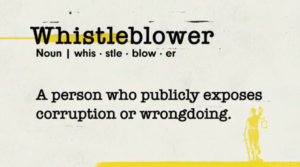The ever-changing domain of False Claims Act (“FCA”) litigation is getting a busy start to the New Year with several notable developments set to play out in 2023, which will set important future trends regarding whistleblowers.
The Department of Justice’s Dismissal Authority Debate

The first notable case is Polansky v. Executive Health Resources, which challenges the U.S. Department of Justice’s (“DOJ”) power to dismiss whistleblower’s FCA cases after the government declines to intervene. The DOJ has traditionally declined to intervene in roughly 75% of all FCA cases and, in recent years, has seemed increasingly willing to dismiss non-intervened cases.
The case is fully briefed and has been argued, so now it is waiting for an opinion from the Justices. If the Court recognizes the government’s dismissal authority, it will likely outline what factors judges should consider when assessing dismissal requests in the future.
The Court’s decision will undoubtedly have monumental effects on FCA whistleblowers as it will determine what authority, if any, the DOJ has to dismiss non-intervened cases.
The “Objectively Reasonable” Defense
Another issue set to play out in 2023 is whether the FCA creates liability attaches when a defendant acts pursuant to an “objectively reasonable” interpretation of compliance regulations. Put another way, does it matter what a defendant’s subjective beliefs were when it submitted a false claim? Those who support an objectively reasonable standard argue that the constantly changing regulations make it such that even if a defendant might suspect, believe, or intend to file a false claim, it cannot know that its claim is false if the requirements for that claim are objectively unknown. Opponents say that the “objectively reasonable” defense will be taken advantage of by fraudsters to avoid the legal and financial consequences of FCA fraud.
There are currently four pending petitions addressing this issue before the Court. The case most likely to proceed is Schutte v. SuperValu Inc., which is the most advanced of the four.
The Necessity of Corrupt Intent to Create AKS Liability
Another issue before the Supreme Court relates to the Anti-Kickback Statute (“AKS”) and whether “corrupt intent” is required to create liability under the FCA.
The question arises from a petition in Pfizer Inc. v. HHS et al., in which Pfizer argues that AKS liability only exists when payments are intended to induce government health spending and manipulate medical decision-making. The issue in Pfizer’s case concerns its desire to offer financial assistance to patients who cannot afford expensive prescriptions covered by Medicare.
Even if the High Court decides not to grant the petition, the issue will likely remain a divisive topic, with similar cases already adopting Pfizer’s argument.
FCA Liability Regarding Improper Billing Resulting From AKS Violations
On the Circuit Court of Appeal level, another Anti-Kickback Statute issue has resulted in a circuit split regarding whether kickback violations resulting from improper billing create liability under the FCA. The split originated from a 2022 decision by the Eighth Circuit in Cairns v. D.S. Medical LLC, requiring proof that a defendant would not have included the improper items or services without the incentives of kickbacks. This ruling contradicted an earlier Third Circuit decision in Greenfield v. Medco Health Solutions Inc., which found that neither the FCA nor AKS require a plaintiff to show that kickback-influenced patients use a particular medical provider to create liability.
If other courts adopt the Eighth Circuit’s decision, it will provide a more favorable reading of the AKS and FCA for defendants, lowering the potential consequences of AKS violations and any subsequent FCA violations they may cause.
FCA Developments in the Cybersecurity and Medicare Advantage Sectors
In recent years, the DOJ has prioritized cybersecurity as an area of interest through its Civil Cyber-Fraud Initiative. In particular, this initiative has targeted companies that contract with or receive grants from the federal government concerning electronic systems that fail to comply with cybersecurity requirements.
The initiative’s first FCA settlement was in March of 2022. It involved a medical services contractor for the U.S. Air Force that settled for nearly $1 million because it failed to consistently store patient medical records on a secure electronic system.
Similarly, the DOJ has recently voiced its interest in Medicare Advantage Plans cases. The DOJ has already sued some of the program’s leading insurance providers and highlighted its concerns that these private companies are exaggerating patient illnesses to receive more federal funds.
The FCA realms of cybersecurity and Medicare Advantage fraud will certainly continue to develop throughout 2023.


